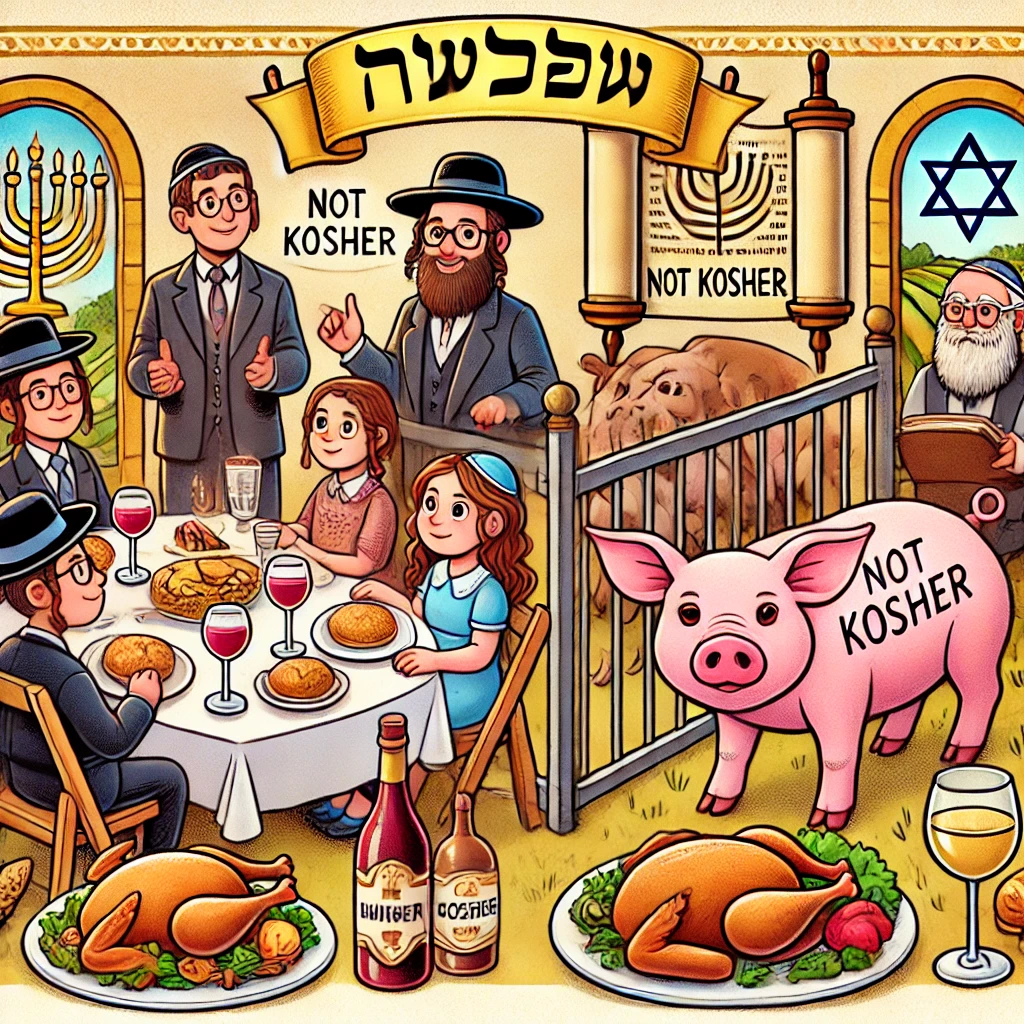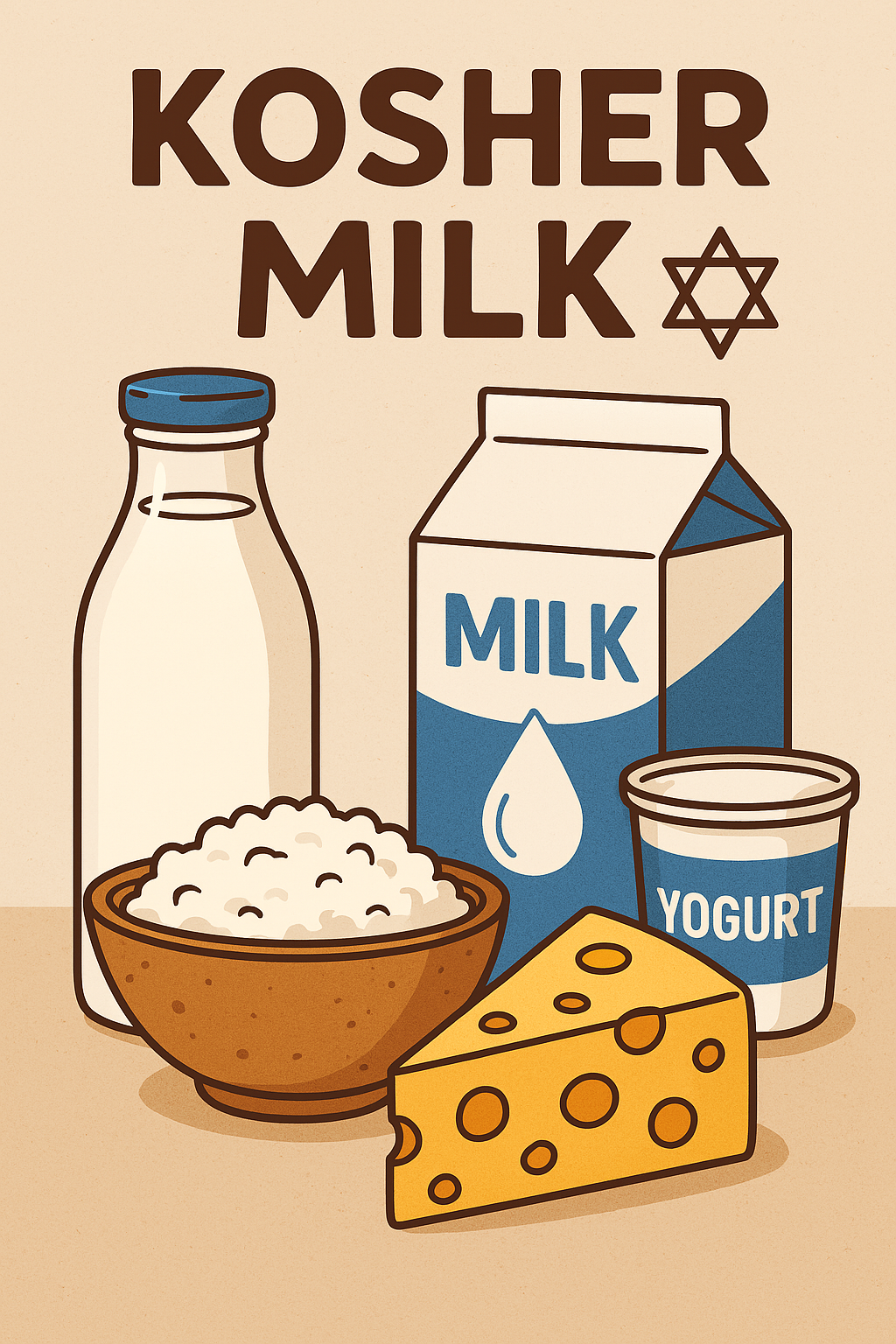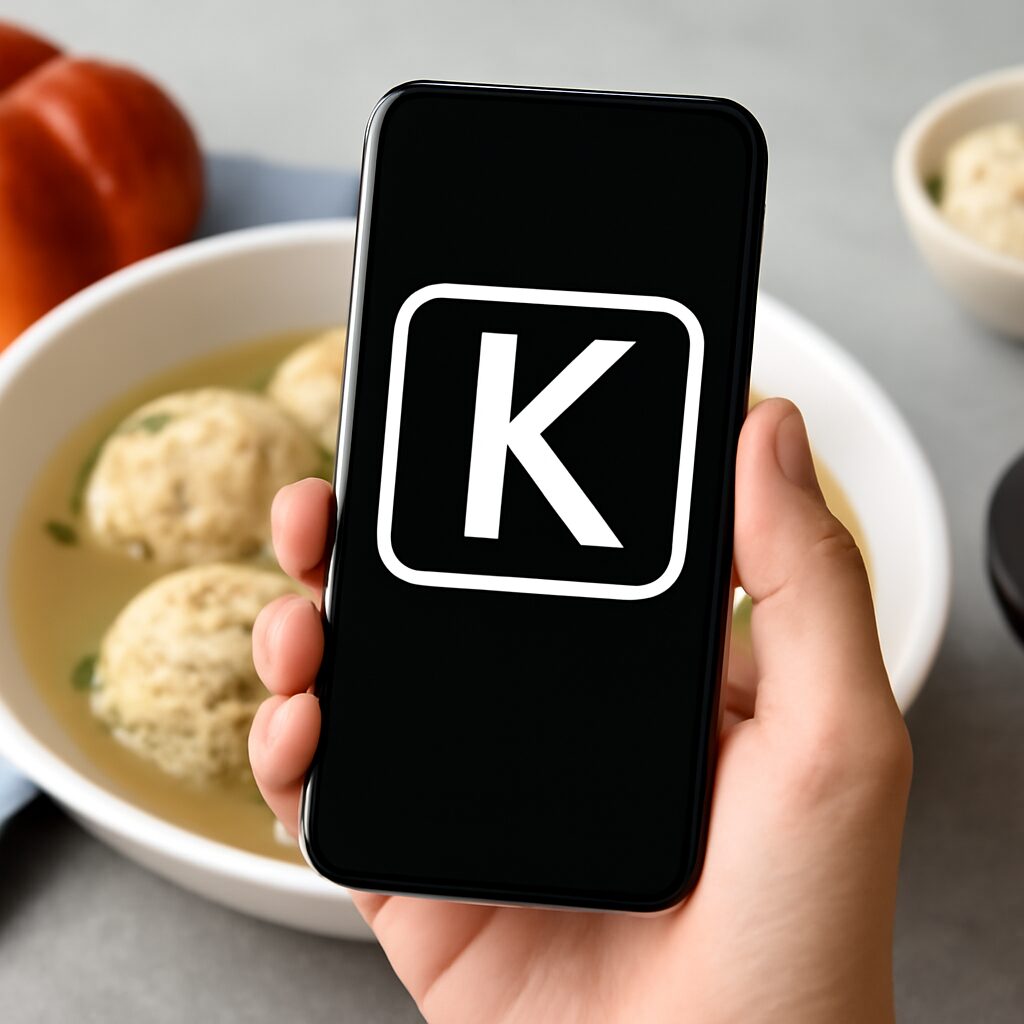
The word "kosher" is often associated with food that meets Jewish dietary laws, but its meaning extends beyond the kitchen. In everyday language, it can also describe something as legitimate, proper, or acceptable. Understanding these different uses provides insight into both culinary traditions and broader cultural expressions.
Introduction
Have you ever heard someone ask, “Is that kosher?”
They might not have been talking about food at all! The word “kosher” can mean very different things depending on the context. It’s a bit like a word with a double life.
Kosher has a serious role in the Jewish religion, especially when it comes to food. On the other hand, people use kosher in everyday English to mean something is acceptable, proper, or legitimate. In casual talk, saying “That’s not kosher” is like saying “That’s not okay” or “Something about this is fishy (suspicious).”

In this article, we’ll explore both sides of the word kosher. We’ll see how it applies to food and religion and how it pops up in everyday conversations. Along the way, we’ll look at some fun examples—from kitchen rules to movie quotes—to show how one word can wear two very different hats. Let’s dive in (and don’t worry, it’s totally kosher to be curious)!
Kosher in Judaism: Food That Follows the Rules
When people talk about kosher food, they are talking about food that meets Jewish dietary rules. These rules come from ancient religious laws. In Hebrew, the word kosher (כשר) literally means “fit” or “proper”. So in a religious context, if food is kosher, it means it is fit or okay for a Jewish person to eat according to the tradition.
Jewish dietary laws, also known as kashrut rules, explain what is kosher and what is not. These rules have been followed for thousands of years by many Jewish people. The purpose can be religious obedience, cultural tradition, or even health and community identity. The key idea is that certain foods (and combinations of foods) are allowed, and others are forbidden, in order to be “clean” or proper to eat.
Basic Kosher Rules

- No Pork: Pigs are not kosher animals. This means foods like bacon or ham are not kosher. So, a traditional pepperoni pizza (since pepperoni is usually pork) wouldn’t be kosher.
- No Shellfish: Seafoods like shrimp, crab, lobster, or clams are not kosher. Fish is okay only if it has fins and scales (like salmon or tuna). So popcorn, shrimp, and crab cakes are off the kosher menu.
- Certain Animals Are Kosher: Animals like cows, sheep, and goats are kosher, but only if they are slaughtered and prepared in a special way. That means a beef hamburger can be kosher—but there’s another rule to remember…
- Don’t Mix Meat and Dairy: This is a big rule. You can eat meat, and you can eat dairy (like milk or cheese), but not together in the same meal. So a cheeseburger (meat + cheese) is not kosher because it mixes dairy with meat. A hamburger by itself could be kosher (if the meat and bun are kosher), and cheese pizza could be kosher (if it’s just cheese and a kosher crust and sauce). But put them together into a cheeseburger, and nope! Not kosher.
- No Blood in Food: Kosher meat has to be prepared so that most of the blood is removed (because consuming blood is not kosher). This is one reason why you might hear about “kosher salt” – it’s a type of coarse salt used to help remove blood from meat. Don’t worry, it just means the salt grains are bigger; the salt itself doesn’t have any special blessing.
- Foods Must Be Prepared Properly: Even if you have the right ingredients, the food must be prepared in a clean way without touching anything non-kosher. Many observant Jews have separate dishes and utensils for meat and for dairy, just to be extra sure there’s no mixing. Kitchens in kosher restaurants often have two of everything – two sets of pots, two sets of pans, etc. It’s like keeping two different toolkits for two different jobs.
These are just a few of the kosher rules. There are more details (for example, many observant Jews will only eat meat if a rabbi or a certified inspector has supervised its preparation, and they look for a kosher symbol on packaged foods). The symbols are usually little badges on the package, like a “U” in a circle (⭕U) or a “K” in a star (✡K), that tell shoppers the food is certified kosher. If you check some candy wrappers or cereal boxes in your kitchen, you might spot a kosher symbol without even realizing it!
Now, following all these rules might sound tough. And indeed, not all Jewish people keep kosher. Some keep certain parts (like they won’t eat pork or shellfish) but might not follow everything. Some don’t keep kosher at all. It really depends on the person and how they choose to practice their faith or culture. For those who do keep kosher, it’s an important part of their life and identity. For example, actor Joshua Malina has said, “I keep kosher, so I have an element of consumption awareness embedded into my daily life.” In other words, keeping kosher makes him think carefully about what he eats every day. It’s not just a diet, but a daily practice of mindfulness and faith.
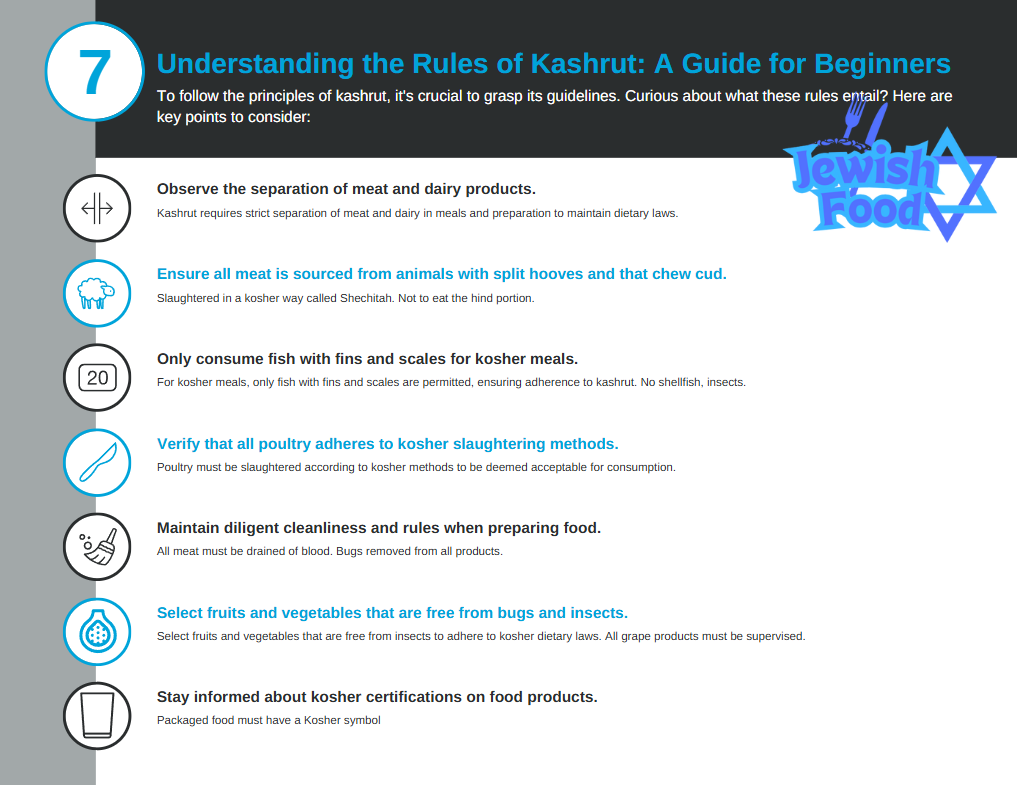
Keeping kosher can also be a family or community activity. It means preparing meals in a certain way and often eating only at places that follow the rules. There are kosher restaurants and grocery stores that cater to these needs. If you live in a city with a big Jewish community, you might see signs for Kosher Deli or Kosher Bakery. This tells people that those places sell food that meets the kosher requirements. Even some big brands and supermarkets have sections for kosher products, especially around Jewish holidays.
Because kosher rules are strict, there are some foods people really miss if they decide to keep kosher. A common example is bacon. Bacon (from pigs) smells and tastes good to many people, but it’s definitely not kosher. There’s a bit of humor in how people handle that. Comedian Roseanne Barr once joked about her own eating habits by saying, “I’m kosher except for times where I eat pork and shellfish.” Of course, if she’s eating pork and shellfish (like bacon or shrimp), that means she’s not truly keeping kosher at those times – she was being funny and a little sarcastic. The joke shows how tempting non-kosher food can be and that she isn’t strictly following the rules, even though she used the word “kosher” to describe herself. In reality, you can’t be “sometimes kosher”: the food either is or isn’t kosher. But her quote gives a peek at how people might struggle with the rules or poke fun at themselves.
Here’s another relatable example: cheeseburgers. As we noted, a cheeseburger mixes meat and dairy, so it breaks a kosher rule. Actor Zach Braff grew up Jewish and made a humorous remark about this. He said, “I was kosher until I had my Bar Mitzvah, and I… told my father I wanted to eat cheeseburgers.” A Bar Mitzvah is a celebration when a Jewish boy turns 13 and is considered old enough to follow religious duties (for girls, a Bat Mitzvah at 12 or 13). Braff joked that as soon as he was officially a Jewish adult, he used that status not to be more religious, but to argue for breaking kosher to enjoy a forbidden treat! Basically, he was telling his dad that now that he’s a “man,” he’s decided cheeseburgers are worth it. This quote is funny, but it also shows a real choice people face: whether or not to keep following the kosher rules as they grow up.
In summary, when used in a religious context, “kosher” describes food that follows Jewish law. If someone says, “We keep a kosher kitchen at home,” it means they only allow foods and cooking practices that meet those religious rules. If you are invited to a kosher dinner, you can expect no pork on the table, and if there’s a meat dish, there won’t be any butter or cream sauces served with it, for example. Even certain combinations like a cheeseboard and a roast beef would never be side by side in a kosher meal. Everything has to be prepared the right way.
One more thing: Many people mistakenly think that kosher food means a rabbi has blessed the food. This isn’t exactly true. While a blessing might be said over the food before eating (as a thank you prayer), the food being kosher actually depends on how it’s made and what it is, not a magical blessing. A rabbi or an inspector does oversee the process in factories or butcher shops to make sure the rules are followed. But they aren’t blessing each cookie or carrot; they are checking ingredients and processes. So, kosher = allowed by the rules. No rabbi needs to sprinkle water on your salad to make it kosher! 😉
Now that we’ve seen what kosher means in terms of food and Judaism, let’s look at how the same word steps outside the kitchen and synagogue and into everyday language. You’ll see that people use “kosher” in some surprising ways that have nothing to do with eating.
Kosher in Everyday Language: Meaning “Acceptable” or “OK”
The word kosher isn’t only used when talking about food. Over the years, it has found its way into everyday English conversation. In casual use, “kosher” means fair, right, or proper. Basically, saying something is not kosher means you think something is not okay or not on the level. It’s similar to saying “That’s not cool,” “That’s shady,” or “That’s against the rules,” depending on the context.
How did this happen? How did a word about food rules start getting used to mean “legit” or “acceptable” in general? It turns out that many Yiddish words and phrases entered English slang, especially in places like America and Britain in the 20th century. Yiddish is a language that many Jewish immigrants spoke, and it borrows a lot from Hebrew (where kosher comes from) and German. When people heard their Jewish neighbors or friends use the term “kosher” (meaning something is proper or good by the religious rules), they started using it more broadly. By the late 1800s and early 1900s, even people who weren’t Jewish would say things like “Hey, is this deal kosher?” to mean “Is this deal honest or legit?”
Imagine you’re playing a board game with a friend and they try to move their piece in a sneaky way when you’re not looking. You might squint at them and say, “Hey, that’s not kosher!” In this case, you’re not accusing their move of breaking any food law (board games have nothing to do with food!). You’re saying it’s not a fair or honest move. Or picture a classroom setting: The teacher leaves the room and one student quickly changes an answer on their test paper. Another student might whisper, “Dude, that’s not kosher. You’re cheating!” Again, not kosher = not acceptable behavior.
Even adults use it in serious situations. For example, if something strange is going on in a business deal, one might say, “There’s something not kosher about this business.” This means they suspect something dishonest or wrong is happening. John Podhoretz, a columnist, once put it this way: “The problem is that borrowing money to pay back more borrowed money… doesn’t sound kosher. Because it isn’t.” He used kosher to mean the plan doesn’t sound honest or smart – in fact, it sounds like a trick or a trap. Notice how in that quote, the topic is money and loans, not food at all. Podhoretz was basically saying the idea of endlessly borrowing money to pay off loans is not a proper or legitimate way to solve the problem (indeed, it’s how people get into deeper debt). Here, not kosher = a bad idea that isn’t quite right.
The everyday use of kosher can be serious or humorous. It appears in movies, TV shows, books, and just regular talk among friends. Because it’s a bit of slang (informal language), it often shows up in dialogue to make a point in a colorful way.

We even hear kosher in comedy and cartoons. For instance, in The Simpsons, there’s a moment in a video game where a character quips, “Hey, that’s not kosher!” after something unfair happens. Family Guy, another animated show, has a scene titled “Not Kosher” for a joke. Because the Simpsons has a Jewish character (Krusty the Clown, who is Jewish in the story), they sometimes play with the word kosher for laughs. Even if you don’t catch all the cultural details, you can understand from context that when a character yells “That’s not kosher!”, they are complaining something isn’t right or allowed.
The phrase “Is it kosher?” is also used by many people just to mean “Is this okay?” For example, let’s say you want to trade your pudding cup for a friend’s apple at lunch, but you’re not sure if trading food is allowed at your school. You might ask a classmate, “Think it’s kosher if we swap these? I don’t want to break any school rules.” Here you’re basically asking if the teacher would find it acceptable. You’re obviously not asking if the pudding or apple have been prepared under rabbi supervision! The word kosher in that question just means permissible or all right.
Sometimes adults use it to check for permission or consensus. Like, “Is it kosher if I park here for just a minute?” meaning “Is it okay or will I get in trouble?” Or, “We need to make sure everything’s kosher with the contract before we sign,” meaning “we need to check that everything is honest and in order.”
Another everyday phrase: “Kosher seal of approval.” People jokingly say this to mean something has been officially approved as proper. For example, if a group decides on a plan and everyone agrees, someone might laugh and say, “Alright, it looks like this plan gets the kosher seal of approval from the whole team!” They are riffing off the idea of kosher certification (where a product gets a literal seal on its label if it’s approved). It just means everyone thinks it’s acceptable.
It’s interesting that kosher became a popular term in English, whereas similar words from other languages or religions, like halal (which is the equivalent concept in Islam, meaning permissible by Islamic law), didn’t become slang in the same way. You won’t usually hear someone say “Is that halal?” to mean “Is that okay?” in a general sense (unless they literally mean food and the Islamic rules). For some reason, kosher had that special something that made it catch on in common usage beyond its original meaning. Perhaps it’s because of the large Jewish immigrant communities in English-speaking countries back in the day, or because the sound of the word was catchy. It might also be because English speakers were already familiar with some Jewish/Yiddish terms and found them fun to use (like “chutzpah,” “schmooze,” or “klutz”). In any case, kosher in everyday speech is now just a normal part of English idioms.
To solidify the difference, it’s helpful to look at a pair of examples side by side:
- Religious context: “Mom, is this hot dog kosher?” – In this context, you’re asking if the hot dog is made from allowed ingredients (likely beef, prepared correctly) and hasn’t been mixed with anything forbidden. Maybe you’re checking for a kosher symbol on the package or making sure it’s not a pork hot dog. Here kosher = allowed by Jewish law.
- Everyday context: “Mom, is it kosher if I watch an extra hour of TV tonight?” – Here you’re using kosher in a totally non-food way. You really mean “is it okay/proper/permitted” to do that. Maybe you heard the phrase somewhere and decided to use it with a little smile. Your mom might jokingly reply, “Well, it’s a school night, so that’s not kosher with me!” She’s responding in the same slang: not kosher with me means not okay with me (sorry, kid, you have to do homework or sleep instead).
See how the same word can be used so differently? In the first case, the mom might actually answer, “Yes, it’s a kosher hot dog, I bought it from the kosher butcher,” or “No, sorry, it’s not kosher — it has some non-kosher ingredients.” In the second case, it has nothing to do with butchers or ingredients; it’s just about permission.
Sometimes, using kosher in the casual sense can even be a little playful or humorous, because you’re borrowing a term from a specific religious context to talk about everyday things. People might say it with a grin. For example, a friend planning a prank might assure the others, “Don’t worry, it’s totally kosher — nobody will get hurt and it’s all in good fun.” They’re basically saying the prank plan is acceptable to everyone involved (and hopefully within the rules/not mean).
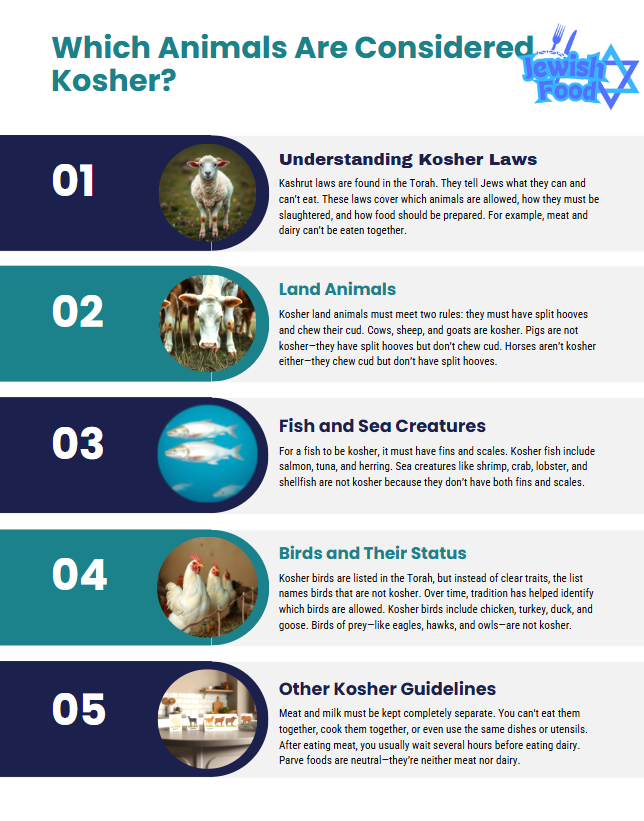
Even politicians or commentators use it. Recently, comedian and TV host Jon Stewart used the term in a serious comment: “Weaponizing food in war is not kosher.” He even added “nor halal” to cover another culture’s term. What he meant was that using food as a weapon (like blocking it from people who need it) is just not right or acceptable by any moral standard. By phrasing it that way, he made a point that crosses cultural lines (since kosher and halal are roughly parallel ideas in two religions) and also added a bit of irony, since obviously war tactics aren’t literally about religious dietary laws. The audience understood that not kosher = completely not okay.
One Word, Two Worlds: Why Context Matters
As we’ve seen, “kosher” can live in two worlds: one is the world of religion and food, and the other is everyday language and slang. The key to understanding which meaning someone is using is context. You have to listen to what the person is talking about.
- If the conversation is about food, cooking, a restaurant, or someone’s dietary habits, kosher likely means the Jewish dietary definition. For example, “This restaurant serves kosher meals” or “Are marshmallows kosher?” (some marshmallows are not kosher because they contain gelatin from non-kosher animals). In this context, details matter—ingredients, kitchen process, certification, etc.
- If the conversation is about a plan, a situation, behavior, or basically anything not directly about food, kosher likely means “okay or legit.” If your friend says, “I read the answers before the test. Don’t worry, it’s kosher—the teacher put them online for everyone,” they’re saying it’s fine/allowed, not that the answers were baked in a rabbi-approved oven! If someone at work says, “We need this contract to be kosher before we sign it,” they mean it needs to be above-board and correctly done (all rules followed, nothing fishy hidden in it).
The two meanings, however different, are loosely connected by the idea of being proper. In the original Hebrew, kosher means proper/correct. In Jewish law, it’s about being proper in the eyes of religious rules. In slang, it’s about being proper in a general sense. So you can see, the everyday meaning grew out of a metaphor: if food that is clean and acceptable is kosher, then by analogy, an action that is honest and acceptable is “kosher” too. It’s a cool example of how language evolves and how words travel from one community to wider use.
It’s important to use the word with the right tone though. Using kosher in the casual sense is common and usually not offensive—many Jewish people also use it that way jokingly. But be mindful: if you’re around someone who keeps kosher strictly, making tons of kosher puns while they are checking ingredients might come off as insensitive. However, generally saying “Is that kosher?” about a non-food matter is perfectly fine in English; people do it all the time.
Another interesting thing: Because kosher is so strongly connected to Jewish culture, using it in casual slang adds a bit of color or humor automatically. It’s a tiny nod to the origins of the word every time. For example, a character in a novel might say, “He gave me a diamond ring, but something just wasn’t kosher about it.” Right away you sense, “aha, they suspect something is wrong.” If the author had just said “something was wrong about it,” it’s a bit plainer. Using kosher spices it up (pun intended, thinking of spices and food!).
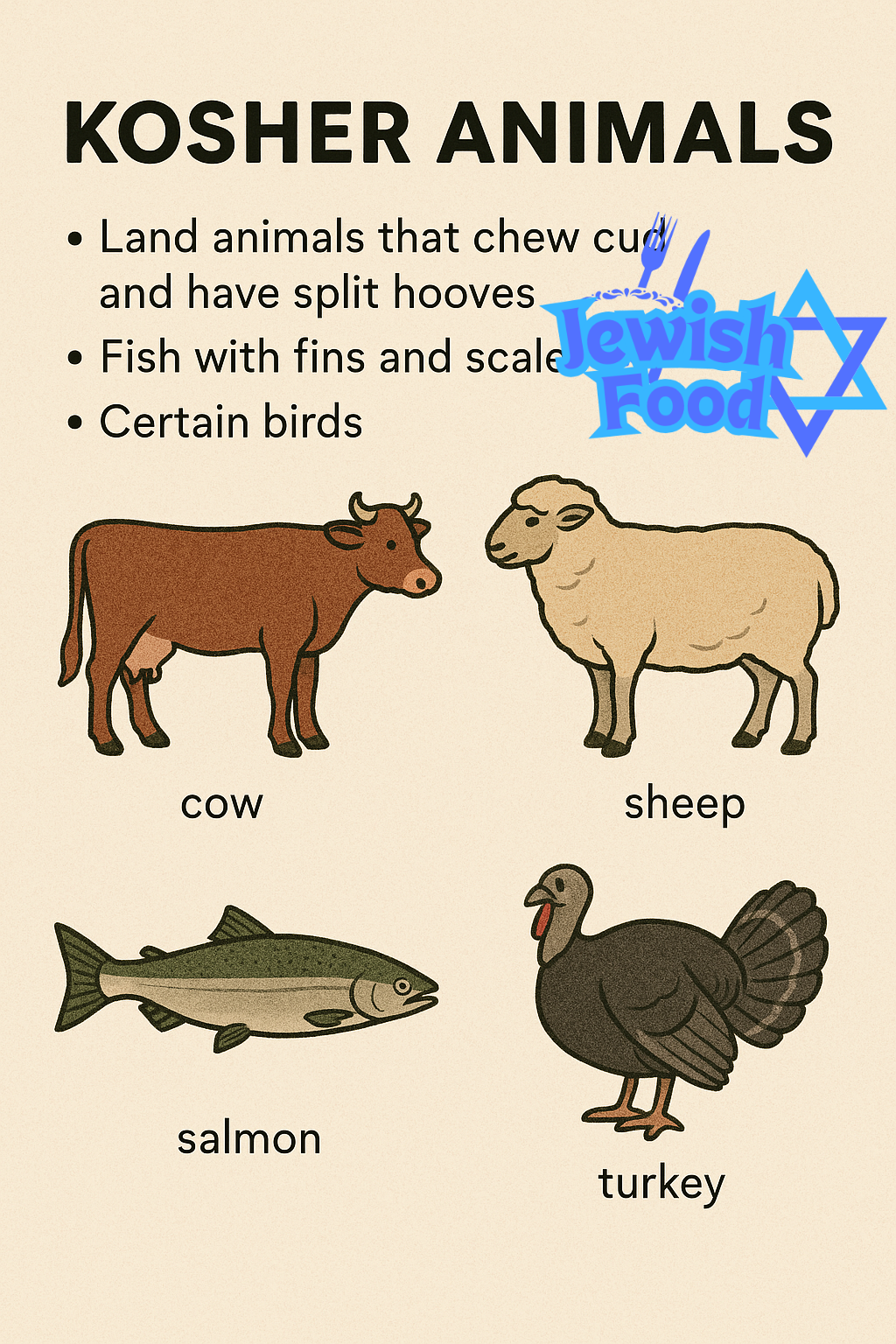
Conclusion
The word kosher shows us how language can carry rich meanings from culture to everyday life. In a religious context, kosher is serious business — it’s about what people can eat according to Jewish law, and it comes with a whole framework of rules and traditions. In an everyday context, kosher has taken on a more playful or general meaning of “acceptable and on the level.”
We’ve seen that one person might be talking about a kosher hot dog (meaning a hot dog that meets dietary laws), while another person might talk about a kosher plan (meaning a plan that is fair or legit). You wouldn’t want to mix those up — a “kosher plan” has nothing to do with eating a plan for dinner! And a “kosher hot dog” doesn’t mean the hot dog is honest or ethical; it just means it’s okay for a kosher-keeping person to eat.
To avoid confusion, just remember the context:
- Food or religion context = kosher means fits the Jewish rules.
- General context = kosher means okay or not suspicious.
It’s fascinating and a little funny that the same word can apply to grandma’s recipe for chicken soup and to a detective questioning a suspect’s story (“Hmm, your alibi is not kosher, mister!”). But that’s the beauty of language: words travel and change.
So next time you hear the word “kosher”, pay attention. Are we talking about what’s for lunch, or are we talking about if something smells fishy (and I don’t mean the fish is off-limits)? You’ll likely figure it out from the situation. Now that’s using your noggin in a kosher way — by understanding context!
In everyday life, knowing the two meanings of kosher can even make for a good pun or joke. For example, if you’re eating at a kosher restaurant and your friend asks, “Is everything kosher?” you could smile and say, “I sure hope so, since this is a kosher restaurant!” You’ve cleverly answered both meanings at once.
One word, two uses: kosher keeps things interesting. Whether you’re describing a sandwich or sizing up a sneaky situation, kosher is a handy word that has you covered. And now you know the difference! It’s all good — or as one might say informally, “Everything’s kosher.”
Frequently Asked Questions
What does kosher mean in food?
Kosher refers to food that complies with Jewish dietary laws (kashrut). It includes rules about permitted animals, how they are slaughtered, and the separation of meat and dairy products.
Can kosher also mean something is acceptable or legitimate?
Yes, outside of food, 'kosher' is often used informally to mean something is proper, acceptable, or legitimate, like saying a business deal is 'kosher.'
Are all Jewish foods automatically kosher?
No, not all Jewish foods are kosher. They must be prepared according to kashrut laws, including using kosher-certified ingredients and following proper preparation methods.
What are some common kosher symbols to look for on food labels?
Common kosher symbols include the OU (Orthodox Union), OK, Kof-K, and Star-K. These indicate the product has been certified by a recognized kosher authority.
Why do some people eat kosher food even if they're not Jewish?
Some non-Jewish people choose kosher food for dietary preferences, perceived higher quality, or religious reasons (e.g., Muslims may eat kosher meat as it meets halal slaughter requirements).

